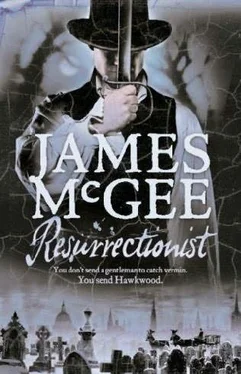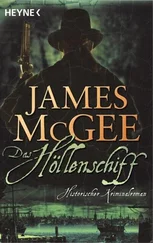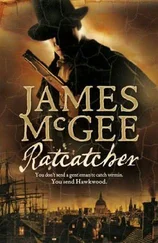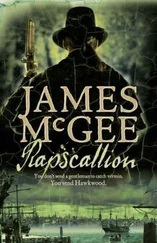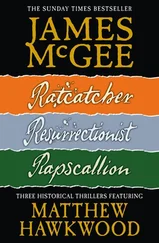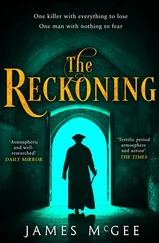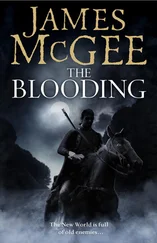James McGee - Resurrectionist
Здесь есть возможность читать онлайн «James McGee - Resurrectionist» — ознакомительный отрывок электронной книги совершенно бесплатно, а после прочтения отрывка купить полную версию. В некоторых случаях можно слушать аудио, скачать через торрент в формате fb2 и присутствует краткое содержание. Жанр: Исторический детектив, на английском языке. Описание произведения, (предисловие) а так же отзывы посетителей доступны на портале библиотеки ЛибКат.
- Название:Resurrectionist
- Автор:
- Жанр:
- Год:неизвестен
- ISBN:нет данных
- Рейтинг книги:4 / 5. Голосов: 1
-
Избранное:Добавить в избранное
- Отзывы:
-
Ваша оценка:
- 80
- 1
- 2
- 3
- 4
- 5
Resurrectionist: краткое содержание, описание и аннотация
Предлагаем к чтению аннотацию, описание, краткое содержание или предисловие (зависит от того, что написал сам автор книги «Resurrectionist»). Если вы не нашли необходимую информацию о книге — напишите в комментариях, мы постараемся отыскать её.
Resurrectionist — читать онлайн ознакомительный отрывок
Ниже представлен текст книги, разбитый по страницам. Система сохранения места последней прочитанной страницы, позволяет с удобством читать онлайн бесплатно книгу «Resurrectionist», без необходимости каждый раз заново искать на чём Вы остановились. Поставьте закладку, и сможете в любой момент перейти на страницу, на которой закончили чтение.
Интервал:
Закладка:
No one queried the Surgeon-General’s statement. Treating wounded enemy combatants was a fact of war and not uncommon. Mostly it occurred in the wake of a withdrawal. It could take a long time to evacuate a field hospital and, in such a situation, speed was of the essence. The walking wounded were usually no bother, provided they could keep up with the retreat. The seriously injured, however, were often left at the mercy of the enemy, with a skeleton medical staff remaining behind to act as overseers. In the case of the British, that duty tended to fall to an assistant medical officer or a surgeon’s mate, who would be exchanged for their French counterparts at a later date.
Hawkwood remembered Oporto. The French commander, Soult, had left so fast that he hadn’t just left his stores, guns, bullion and his sick and wounded, he’d also left his still-warm dinner. There had been a lot of French casualties, he recalled.
“Anyway,” McGrigor continued, “it was put down to contention in the ranks. If the colonel had an obvious flaw it was that he was too intolerant of the conditions and some of the procedures carried out by less able surgeons. We were in a hospital in Portsmouth when I saw him berate one of his colleagues for continuously bleeding a man. Yelled at him that if he took any more blood the only things left on the bed would be boots and bones. The colonel was a brilliant surgeon and he knew it. But he tended towards arrogance, and the others resented him for it.”
“So there was no truth to these ‘murmurs’?” Hawkwood said.
There was a long pause. “None that we knew of… at least, not then.” McGrigor brushed a speck of dust from his knee. “But it had become plain that his attitude, his insinuations and his contemptuous manner had won him no friends among the other medical officers. On duty, they tolerated him. Off duty they excluded him. He began to spend his free time alone, and in doing so became increasingly isolated and withdrawn. It was at Talavera that we finally learned the truth.”
A nerve flickered along the Surgeon-General’s cheek. Hawkwood suspected that McGrigor expected mention of Talavera to cause him unease. He wondered if Ryder was aware of that part of his history. Nothing in the Home Secretary’s demeanour indicated that he knew. It was probably better if it remained that way.
“Go on,” Hawkwood said.
“Field hospitals were set up in preparation — commandeered farms, schools, churches and so forth. You know how these things work. Colonel Hyde’s hospital was located in the monastery of San Miguel. It was on the outskirts of a village about four miles from the battlefield. It took a lot of the injured.”
Talavera had been a great victory though it had been far from clean cut. French losses had exceeded those of the British, yet Wellington’s forces had been reduced by a quarter.
“They hadn’t been there long when they had to begin the withdrawal.” McGrigor scowled.
Shortly after the battle, Wellington’s scouts advised him that Marshal Soult, the man who’d fled from Oporto, had reorganized his troops and descended on the British line of communications at Plasencia. With his Spanish allies unwilling to commit, his army reduced and supplies for an extended campaign dwindling, Wellington had been forced to retreat towards the Portuguese border. He’d set up camp at Badajoz.
“A lot of the wounded were left behind,” McGrigor said. “It was hoped the French would honour their side of the bargain. They damned nearly didn’t.”
James Read frowned. “What happened?”
“When the French moved up they took the hospitals, including the monastery…” McGrigor paused, collecting his thoughts. “There were several outhouses. When the French began their inventory they discovered that one of the more isolated buildings was a winery. Most of it had been destroyed by fire, but the reconnaissance patrol thought there might be a few bottles still intact, so they decided to explore. When they broke into the cellars, they discovered a room full of dead French soldiers. All the bodies, according to witnesses, showed signs of severe disfigurement…” Again McGrigor paused. “And it wasn’t from their battle wounds.”
Hawkwood glanced towards the Chief Magistrate. Read looked back at him, his expression still.
McGrigor continued: “They also found an assortment of preparations.”
“Preparations?” Hawkwood said.
“Specimens.”
Hawkwood wasn’t sure he wanted to know the answer, but he knew he had to ask the question. “Of what?”
“Body parts, bones, tissue, teeth — that sort of thing. Most of them were wet.”
“The place was flooded?”
McGrigor shook his head. “It’s a term anatomists use. Preparations are either wet or dry. Wet ones are preserved in solution — spirit of wine, usually; alcohol at any rate. It was a winery. There was a ready supply. Dry refers to muscles and organs that have been air-dried, usually by hanging. As I said, there weren’t as many of those.”
“Like curing game, what?” Ryder murmured to no one in particular. He had the grace to look shamefaced as soon as he’d said it.
“No,” McGrigor said coldly. “Not like that, at all.”
Ryder’s cheeks coloured.
“How do you know all this?” Read asked.
“Captain Grant’s agents intercepted French dispatches, including a report from a French surgeon who was called to examine the scene. From the state of the bodies, he concluded that someone had been trying to perform restorative surgery. One example was a cadaver with a severe sabre wound in its skull. A portion of bone from another skull had been fashioned to size and inserted into the wound. There was one soldier who’d suffered a serious wound to the face, including the loss of an ear. An attempt had been made to rebuild the face, using the skin and ear from another man’s corpse. Two of the bodies had burns to the legs…” The Surgeon-General glanced towards Hawkwood. “You recall the fires on the battlefield?”
Hawkwood nodded. It was the smell he remembered the most, like pork on a spit.
“The burnt sections of their skin had been removed and replaced with skin taken from other bodies. Some of the adjacent corpses were missing corresponding areas of skin. According to French military surgeons’ reports, it looked as though they’d been flayed.”
McGrigor shifted in his seat. “A number of graves were also discovered. They’d not been filled in properly. Most likely they’d been dug in haste. Upon examination, it was found that some of the interred bodies had been interfered with: organs removed, flesh excised, limbs severed… A lot of the missing organs matched the ones found in the preparation room in the cellar.”
There was a pause, and then McGrigor continued: “They also found… animal parts.”
“What?”
“One of the corpses had a bowel wound. Someone had tried to join the two segments of the bowel together using a section of windpipe from a goat.”
For a moment, Hawkwood thought he must have misheard. “Did you say a goat?”
“The goat’s trachea had been inserted into both ends of the bowel, which had then been drawn together over it. I’ve heard about it, but never seen it performed. They also found that a section of the goat’s intestines had been removed. The French surgeon’s report stated that it was most likely intended as some sort of a conduit and that Hyde had been attempting a transfusion of blood.”
“From a goat to a man?” Hawkwood stared at the Surgeon-General in disbelief.
“Good God, no!” McGrigor shook his head, but then, to Hawkwood’s astonishment, he said, “Although Denys and Lower carried out similar procedures using lamb’s blood.”
Hawkwood looked over towards the Chief Magistrate. James Read’s face was pale, as was the Home Secretary’s; though presumably the latter wasn’t hearing anything he didn’t already know.
Читать дальшеИнтервал:
Закладка:
Похожие книги на «Resurrectionist»
Представляем Вашему вниманию похожие книги на «Resurrectionist» списком для выбора. Мы отобрали схожую по названию и смыслу литературу в надежде предоставить читателям больше вариантов отыскать новые, интересные, ещё непрочитанные произведения.
Обсуждение, отзывы о книге «Resurrectionist» и просто собственные мнения читателей. Оставьте ваши комментарии, напишите, что Вы думаете о произведении, его смысле или главных героях. Укажите что конкретно понравилось, а что нет, и почему Вы так считаете.
